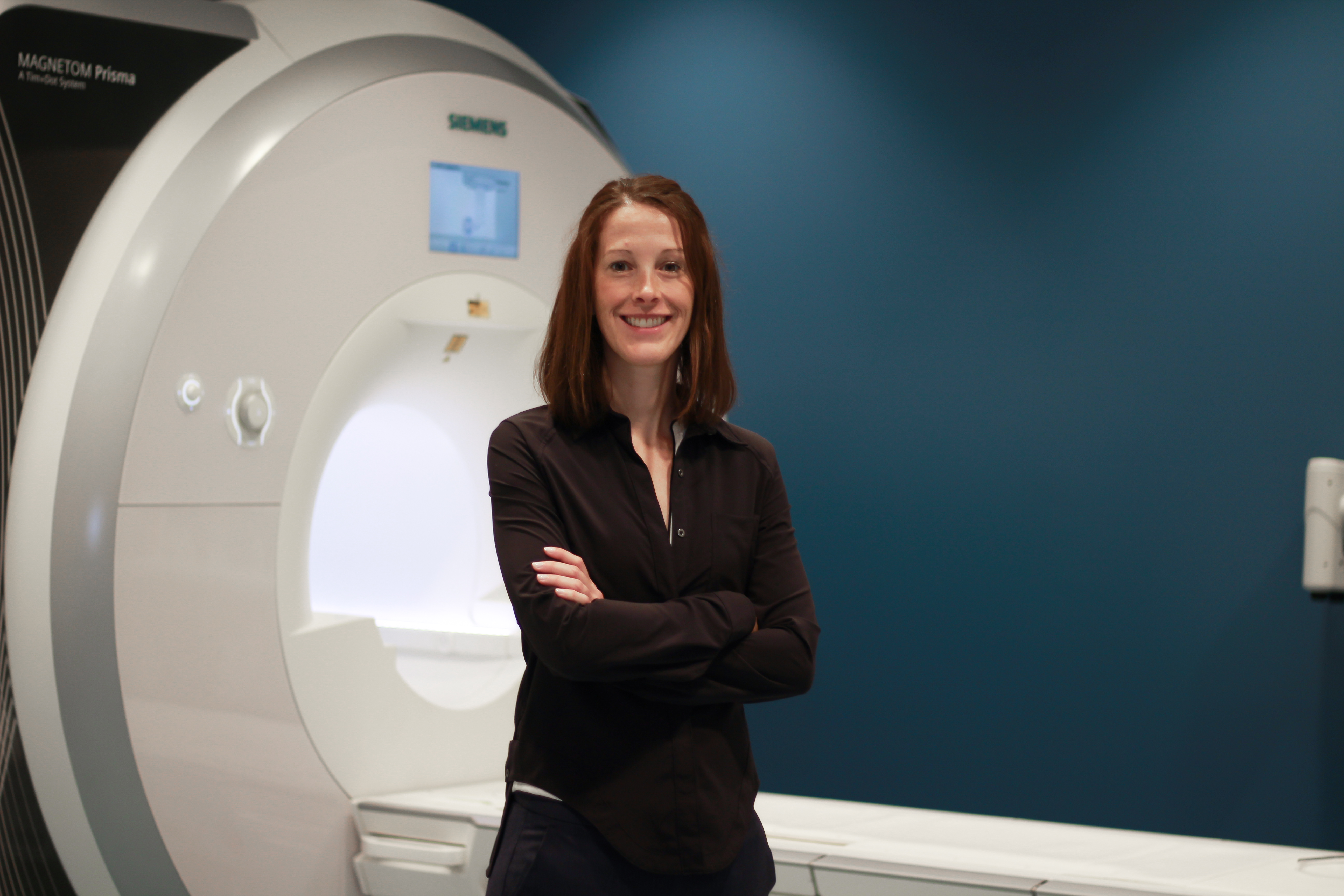
Amy Kirkham is leading a study examining if heart damage from chemotherapy can be prevented through exercise and diet.
It's no secret that exercise and diet are key to long-term health and quality of life. A new University of Alberta study starting this fall is hoping to prove that their protective powers go beyond general health and could, in fact, prevent some of the most toxic side effects of chemotherapy for breast cancer patients.
Every year thousands of women with breast cancer are treated with chemotherapy agents called anthracyclines. While effective in treating the tumour, the drugs are also known to cause damage to heart muscle cells, resulting in diminished heart function, which can be permanent and cause long-term cardiovascular problems.
"People are concerned. Older women with breast cancer-65 or older-are actually now more likely to die from cardiovascular disease than they are from breast cancer," said Amy Kirkham, a postdoctoral research fellow in the U of A's Department of Biomedical Engineering and principal investigator of the study.
Kirkham believes a straightforward solution could lie in exercise and caloric restriction. Prior studies in animal models have shown that both lifestyle interventions can reduce the detrimental effects of anthracyclines on the heart, and may also reduce cancer progression. She is leading a multidisciplinary team conducting a clinical trial to test their effect on 56 women scheduled to receive anthracycline treatment for early-stage breast cancer.
The women will be randomly assigned to three different groups. The first will perform a vigorous-intensity 30-minute aerobic exercise session 24 hours before each treatment. The second group will eat a diet reduced by 50 per cent of caloric intake requirements for 48 hours prior to each treatment. The third group will receive usual cancer care. Novel magnetic resonance imaging (MRI) techniques will be used to measure the function of the women's heart, aorta and skeletal muscle at rest, during exercise inside the scanner before treatment, at the end of treatment, and one year later. The use of exercise as a stress during the imaging will allow the researchers to detect more subtle changes in these systems that could be masked at rest.
The researchers will also examine if exercise and caloric restrictions have other benefits for the patients. According to Kirkham, prior evidence in animal models has shown that they have the potential to increase delivery of the chemotherapy to the tumour itself and independently reduce tumour growth, regardless of chemotherapy treatment.
"These interventions are entirely feasible, accessible and inexpensive. So that's the real draw for it," said Kirkham. "If this works, this is something that we can immediately implement for treatment in pretty much any centre."
The three-year study is supported by a $242,000 operating grant from Susan G. Komen-a US-based breast cancer funding organization.